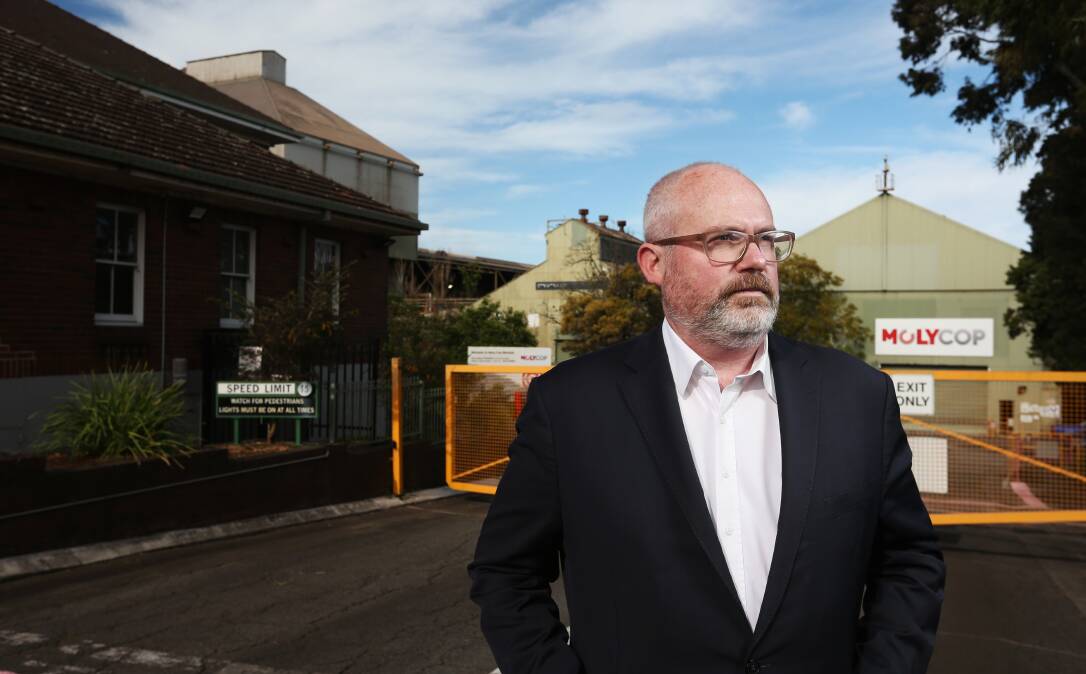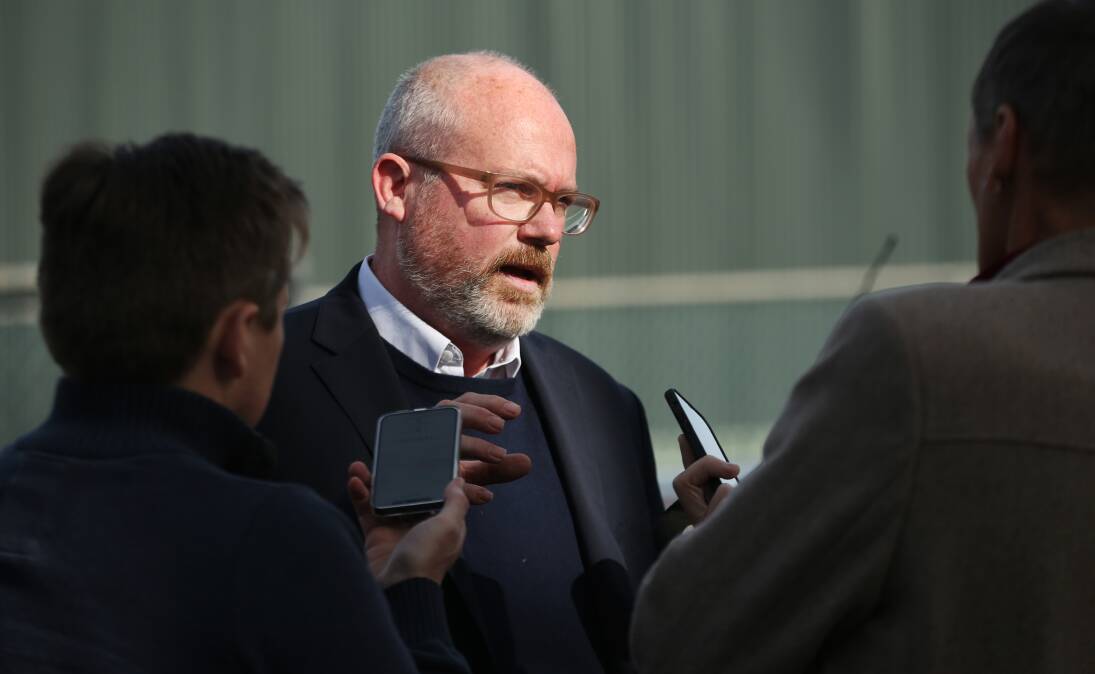
THE Albanese government is reminding gas exporters of their social licence to operate as it moves to protect households and industry alike from the huge spike in domestic gas prices.
Senator Tim Ayres, the Assistant Minister for Trade and Manufacturing, was at Waratah this afternoon to meet management of Molycop, one of a number of Hunter industries that Senator Ayres said were threatened by spiralling gas and electricity prices.
Senator Ayres, an official with the metalworkers union before entering parliament, said he was familiar with the site, which first made steel in 1918 and which employed 500 people today. As well as the Comsteel electric-arc steelmaking furnace, the site was also "Australia's only manufacturer" of railway wheels and grinding balls for the mining industry.
"Companies like MolyCop and Tomago Aluminium and Orica are critical parts of Australia's industrial infrastructure and we need to make the sure the gas industry is giving them a fair shake, and right now they are not getting a fair deal," Senator Ayres said.
Senator Ayres said the Australian Competition and Consumer Commission had shown in this month's report on the gas industry that the gas majors were exporting "more than their contracted volumes" - meaning this gas could be redirected back to domestic markets without the gas companies breaching their contractual obligations.
In yesterday's Newcastle Herald, Business Hunter chief Bob Hawes revived calls for an east coast version of Western Australia's gas reservation laws, which force exporters to keep 15 per cent by volume of their production for the domestic market.
Mr Ayres said he did not favour this approach. Labor was working with the existing Australian Domestic Gas Security Mechanism, and wanted gas companies to work voluntarily with government and industry.
"The time for a sensible gas reservation policy was when these gas (export) contracts were being negotiated by the Howard government," Senator Ayres said.
Senator Ayres said Labor had a three-point plan to "get the best deal for industry" and domestic users.
The first point revolved around using an existing federal process, the Australian Domestic Gas Security Mechanism, which was introduced in 2017 by the Turnbull government and which Senator Ayres described yesterday as a "weak and insufficient mechanism".
Because of this, the second point centred on reforms to the gas security mechanism, to broaden it and to ensure it worked to secure domestic supply.
The third point was negotiating with gas exporters to voluntarily change the way they operated.
"I just want to say this to the gas industry," Senator Ayres said.
"If we are the world's largest (seaborne) exporter of (liquified natural) gas (LNG), there is plenty of uncontracted gas for Australian industry.
"There is a requirement, a social licence, a moral obligation on the Australian gas sector who are exporting Australian gas overseas at very high prices, to ensure that they recognise they operate under a social licence, by coming to a heads of agreement with the Australian government, and resolving these questions in time, and provide certainty and security and reasonable prices for Australian industry."
The safeguard mechanism is due to expire at the end of this year and Senator Ayres said the government had begun consultations on extending it until 2030.
Senator Ayres said Australia could still use and export gas and meet its 2030 and 2050 climate targets and anyone who said otherwise was "dead wrong".
He said Australia would account for Scope One and Scope Two emissions and the Scope Three emissions - those produced by the burning of coal and gas - belonged in the carbon balances of the nations we exported to.
He said the short term reality was that the Russian invasion of Ukraine had reduced global gas supplies and forced up prices.
Australian industry and households were suffering and the government was working to find solutions "for the next six months, 12 months, 18 months".








